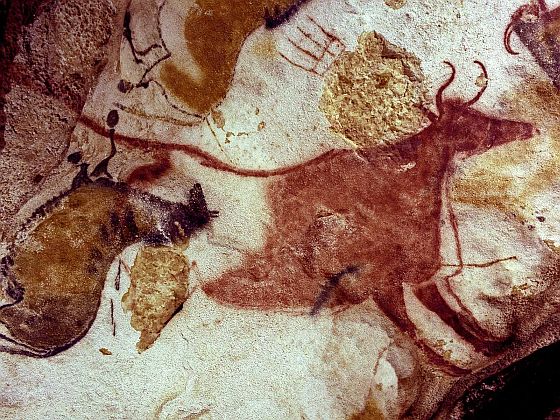“I am very concerned about Syria becoming an enclave for extremism because extremists thrive in chaos, they thrive in failed states, they thrive in power vacuums,” President Obama said at a news conference in Amman, Jordan, this week.
Given that this administration has designated the al Nusra Front as a terrorist organization, is now linking it to al Qaeda’s leadership in Pakistan, and that the widely accepted consensus is that among the opponents of the Assad regime, this ranks as the most powerful group, isn’t the eventuality that Obama fears, the state of affairs that already exists?
Maybe not. Maybe in Obama’s mind the current conditions in Syria represent what amounts to a tolerable balance of power. The rebels don’t have the strength to topple Assad and Assad retains control over his chemical weapons. For the U.S., Syria’s river of blood has not reached flood stage.
Even when it would be possible to make an argument that since the U.S. has such limited influence over the outcome it should not be involved in Syria militarily in any way whatsoever, Obama opts for limited involvement for what would appear to be political reasons: he can thereby deflect criticism from those who say the U.S. must do something — even if in the end all the U.S. is doing is prolonging the war.
The Wall Street Journal reports: The Central Intelligence Agency is expanding its role in the campaign against the Syrian regime by feeding intelligence to select rebel fighters to use against government forces, current and former U.S. officials said.
The move is part of a U.S. effort to stem the rise of Islamist extremists in Syria by aiding secular forces, U.S. officials said, amid fears that the fall of President Bashar al-Assad would enable al Qaeda to flourish in Syria.
The expanded CIA role bolsters an effort by Western intelligence agencies to support the Syrian opposition with training in areas including weapons use, urban combat and countering spying by the regime.
The move comes as the al Nusra Front, the main al Qaeda-linked group operating in Syria, is deepening its ties to the terrorist organization’s central leadership in Pakistan, according to U.S. counterterrorism officials.
The provision of actionable intelligence to small rebel units which have been vetted by the CIA represents an increase in U.S. involvement in the two-year-old conflict, the officials said. The CIA would neither confirm nor deny any role in providing training or intelligence to the Syrian rebels.
The new aid to rebels doesn’t change the U.S. decision to not take direct military action. President Barack Obama last year rejected a CIA-backed proposal to provide arms to secular units fighting Mr. Assad, and on Friday he reiterated his argument that doing so could worsen the bloodshed.
He also warned that Mr. Assad’s fall could empower extremists. “I am very concerned about Syria becoming an enclave for extremism because extremists thrive in chaos, they thrive in failed states, they thrive in power vacuums,” Mr. Obama said at a news conference in Amman, Jordan.
The new CIA effort reflects a change in the administration’s approach that aims to strengthen secular rebel fighters in hope of influencing which groups dominate in post-Assad Syria, U.S., European and Arab officials said.
The CIA has sent officers to Turkey to help vet rebels that receive arms shipments from Gulf allies, but administration officials say the results have been mixed, citing concerns about weapons going to Islamists. In Iraq, the CIA has been directed by the White House to work with elite counterterrorism units to help the Iraqis counter the flow of al Qaeda-linked fighters across the border with Syria.
The West favors fighters aligned with the Free Syrian Army, which supports the Syrian Opposition Coalition political group.
Syrian opposition commanders said the CIA has been working with British, French and Jordanian intelligence services to train rebels on the use of various kinds of weapons. A senior Western official said the intelligence agencies are providing the rebels with urban combat training as well as teaching them how to properly use antitank weapons against Syrian bunkers.
The agencies are also teaching counterintelligence tactics to help prevent pro-Assad agents from infiltrating the opposition, the official said.
Among other U.S. activities on the margins of the conflict, the Pentagon is helping train Jordanian forces to counter the threat posed by Syria’s chemical weapons, but isn’t working directly with rebels, defense officials say.
The extent of the CIA effort to provide intelligence to Syrian rebels remains cloaked in secrecy. The U.S. has an array of intelligence capabilities in the region, mainly on the periphery of the conflict.
The U.S. uses satellites and other surveillance systems to collect intelligence on Syrian troop and aircraft movements as well as weapons depots. Officials say powerful radar arrays in Turkey are likewise used to track Syrian ballistic missiles and can pinpoint launch sites.
The U.S. also relies on Israeli and Jordanian spy agencies, which have extensive spy networks inside Syria, U.S. and European officials said.
The current level of intelligence sharing is limited in scope because the CIA doesn’t know whether it can fully trust fighters with the most sensitive types of information, several U.S. and European officials said. The CIA, for example, isn’t sharing information on where U.S. and Israeli intelligence agencies believe the Syrian government keeps its chemical weapons, officials said.
Rebel leaders and some U.S. lawmakers say more robust U.S. support is needed to turn the tide in the civil war. These officials say the CIA’s current role comes as too little, too late to make a decisive difference in the war.



